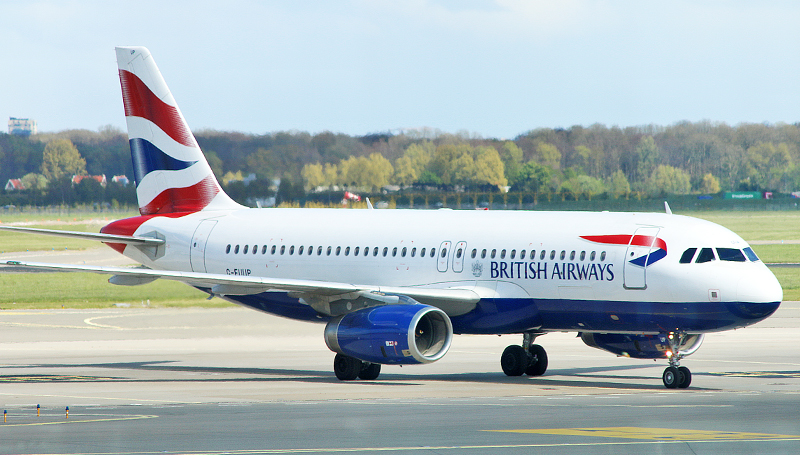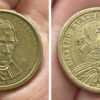If you have ever attempted to redeemed frequent flier loyalty program miles for a transoceanic flight — especially when traveling to the United States — you might have noticed that a fee is added along with the taxes. That fee was originally introduced as a fuel surcharge when prices for fuel skyrocketed years ago for a number of reasons — but as fuel prices had since subsided in recent years, the fuel surcharge was conveniently renamed as a carrier-imposed surcharge, which is basically a way for the airlines to arbitrarily charge you extra simply because they can.
Class Action Lawsuit Against British Airways “An Enormous Victory For Frequent Flier Travelers”?
The marketing departments of airlines constantly tout about how valuable are their frequent flier loyalty program miles with which you can travel all over the world…
…but when the carrier-imposed surcharge — which can literally add hundreds of dollars to the cost of what is supposed to be an award ticket — approach the cost of a revenue ticket, the award ticket suddenly becomes worthless…
…and thus, arguably so do the miles which were to be redeemed to purchase that award ticket.
This irritating practice came to a head in November of 2012, when plaintiffs asserted in a “complaint that British Airways did not tie its fuel surcharges to fuel prices, but instead used the fuel surcharge as an opportunity to charge its Executive Club members hundreds of dollars for each reward ticket”, according to this article written by Juan Carlos Rodriguez for Law360, which states that a federal judge in the United States District Court for the Eastern District of New York on Friday, November 8, 2013 “rejected British Airways PLC’s bid to toss a proposed class action accusing it of violating its frequent-flier program contract by imposing impermissible fuel surcharges on rewards flights, saying the claim wasn’t preempted by federal law.”
In a series of twists and turns in this case, British Airways fought vigorously to have the matter dropped — but the plaintiffs persisted with Dover et al. v. British Airways PLC, Case No. 1:12-cv-05567 for almost five years; and that persistence paid off: greater than 170,000 frequent fliers of British Airways were granted class certification “over allegations they were swindled with overpriced ‘fuel surcharges’” by a federal judge, according to this article written by Melissa Daniels for Law360.
On Tuesday, June 6, 2017, that same judge — whose name is Raymond J. Dearie — “refused to sanction a class of British Airways passengers accusing the airline of inflating fuel surcharges, finding that they timely filed their challenge to expert testimony the airline says justifies the charges, though he punted the decision on whether to allow the expert to testify”, according to this article written by Sophia Morris for Law360.
Although the case is nowhere close to being settled or decided, Charlie Leocha — who is the chairman and founder of Travelers United, which is an advocacy membership organization that represents all travelers — declared in this article that “This is an enormous victory for frequent flier travelers. Currently, a transatlantic flight on BA has additional fuel surcharges tacked onto the frequent flier mile cost of the award ticket. An American Airlines frequent flier award ticket between the exact same two destinations is not assessed a fuel surcharge.”
Summary
This is not the first time that airlines have been sued pertaining to the implementation of fuel surcharges — at least, not for revenue tickets — as some travel agents in Australia sued airlines over fuel surcharges back in 2006.
I asked Charlie Leocha if one of the reasons why airlines continue to use carrier-imposed surcharges is to evade having to pay taxes on revenue derived from them. “The airlines do pay excise taxes on the fuel surcharge”, explained Leocha. “They do not pay the excise taxes on other ancillary fees.”
He went on to explain that the rules of frequent flier loyalty programs “are a different animal. No US airline breaks out the fuel surcharge (now the international airline fee or something along those lines). Virtually all European airlines still break out the fuel surcharge and add it to the FF mileage. That is why when you look a the availability of FF tickets via AA there are many more BA FF tickets available.”
One example which is provided in this article which he wrote illustrates how one award ticket with round-trip flights operated by American Airlines between New York and London costs 45,000 AAdvantage miles plus $176.46; but with two flight segments operated by British Airways, the cost becomes 45,000 AAdvantage miles plus $521.46 — a difference of $345.00.
Leocha vows that “Travelers United is watching the developments in this class action lawsuit carefully.” If you want to join as a member of Travelers United, your cost is only $29.00 for the first year — and membership includes such benefits as the use of a Virtual Private Network provided at no extra charge; and saving $25.00 every month at your choice of thousands of restaurants…
…and as a disclaimer, I receive absolutely no benefit or compensation if you join Travelers United as a member.
Although the latest developments in this case can be considered favorable for frequent fliers, I believe that the declaration of victory is still a long way away — and similar to mandatory resort fees imposed upon guests by the lodging industry, airlines should completely do away with the ambiguous carrier-imposed fees altogether from both award tickets and revenue tickets…
…and I may as well hope to one day see a flying unicorn if the lawsuit is not successful…
Photograph ©2017 by Brian Cohen.

